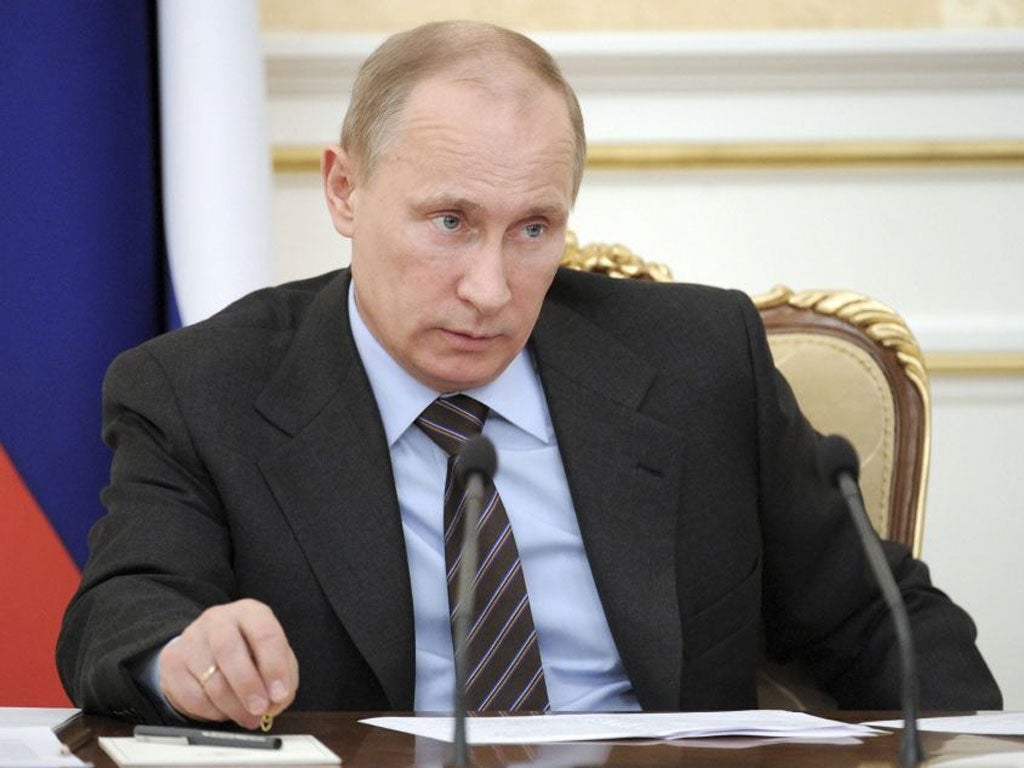Mary Dejevsky: Russia is changing and Putin must, too

The first complete book that any British student of Russian is likely to read in the original is Fathers and Sons, a novel by Ivan Turgenev. There are all sorts of reasons why that might be.
It is short by the standards of Russian literature. Turgenev's style is elegant and spare, so not too taxing for novices and he was an Anglophile at a time when Francophilia was the dominant cultural trend.
With the benefit of hindsight, though, there is another reason why Fathers and Sons offers an appropriate launch pad into the study of Russia: its theme is that of ideological conflict between the generations. That theme crops up again and again in more recent Russian history and, 150 years since Fathers and Sons was first published, it is as pertinent as ever. As Russians go to the polls to elect their next president on Sunday, the contest is as much, if not more, between the generations, as it is between individual candidates.
The ideological dispute that preoccupied Turgenev was between well-meaning liberals who believed in gradualist reform and their children, who emerged from university impatient to demolish the whole establishment edifice and start again. It could be said that, with the Bolshevik revolution 60 years on, the grandchildren of the nihilists got their way.
The debate today is different, but the generational aspect is fundamental – just as it was fundamental to Mikhail Gorbachev's introduction of perestroika and glasnost that precipitated the collapse of the Soviet Union.
Gorbachev's student years coincided with de-Stalinisation and the Khrushchev Thaw. But it was not until he, and the 1960s generation he was a part of, attained a critical mass in the structures of power that they were able to broach change and even then not without fierce debate. To make a career at all, they had had to pay court to a generation that had endured Stalin's Purges and then the ravages of war. Is it any wonder that, between the 1970s and 1980s, a preference for peace and social stability was paramount?
A similar sense of exhaustion and relief dictated the priorities of Vladimir Putin, after he succeeded Boris Yeltsin as president. With almost two decades of unremitting turmoil behind them, stability was what most people craved. And for the best part of 12 years, that is what Putin – systematic, street-wise, but not particularly imaginative – was able to deliver. Now, however, another shift is afoot.
The children of those whose discontent brought the Soviet Union crashing down are graduating from universities in Russia and around the world, entering the professions, and asking why their homeland has apparently made so little progress since it threw off its communist shackles.
To Russian demographers and pollsters, the emergence of this new generation was just a matter of time. That it took so many others by surprise – including, it appears, Putin and many of his immediate entourage – may reflect the volume of post-Soviet background noise and the low level of awareness, especially abroad, of the discussions raging in Russia's – flourishing and uncensored – social media.
It was not until Putin's placeman as President, Dmitry Medvedev, announced in September that Putin, and not he, would be the United Russia party's nominee for president, that the voice of the new generation made itself heard.
The parliamentary elections in December showed its members starting to organise. And when they came on to the streets afterwards, the contrast with the last generation of protesters was immediately apparent. They were well-dressed, articulate, technologically savvy and uncowed.
Where, it was reasonable to ask, had this successor-generation been hiding?
Probably, their time has not yet come. It speaks volumes about the stagnation in post-Soviet Russian politics that the only really organised opposition candidates to figure on Sunday's ballot paper were contesting national elections almost two decades years ago – the Communist leader, Gennadi Zyuganov, and Vladimir Zhirinovsky of the ill-named far-right Liberal Democratic Party.
What is expected to be Vladimir Putin's smooth return to the presidency, though, after four years as prime minister, conceals a more complex reality.
As the negative response to Putin's declared candidacy in September showed, the centre of Russian politics has moved, and will continue to move, and there must be doubts about whether Putin will be engaged enough or agile enough to move with it.
Doubts, but no certainty. The Putin camp has so far avoided the knee-jerk retrenchment that has tended, down the ages, to be the Kremlin's response to the unexpected. Moscow has taken a less aggressive approach to street protests. Some key members of the Putin old guard have been moved.
Pledges have been given about improving the transparency of elections. The durability of these changes could be tested in the next week. In the unlikely event that Putin has to fight a second round, the temptation to clamp down will only grow. Beyond that, Putin's continued effectiveness, even his survival in power, will depend on how open he is to co-opting individuals or ideas from his country's rising generation.
Over 20 years, Russian politics – though not its economy – has struggled to escape communism's thrall. It is only now that the first truly post-Soviet Russians are coming into their own and the world's long-time Russia-watchers could be in for a surprise.
First acquaintance suggests that Russians of the next generation are not just richer and more cosmopolitan than their parents, but more realistic and less dogmatic, too. Which prompts another thought...
As the Russian power-holders of tomorrow move to inherit their tsardom, perhaps the time has finally come for a new, less ideological, generation of post-Soviet Russia-watchers, too.
Join our commenting forum
Join thought-provoking conversations, follow other Independent readers and see their replies
Comments
Bookmark popover
Removed from bookmarks